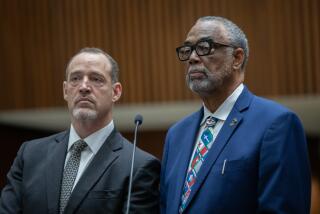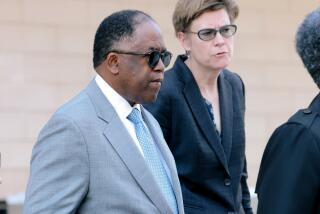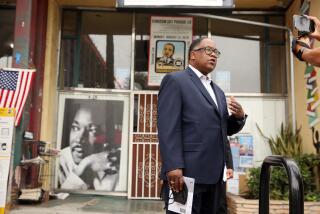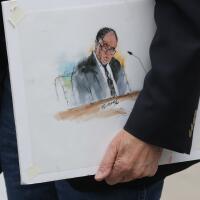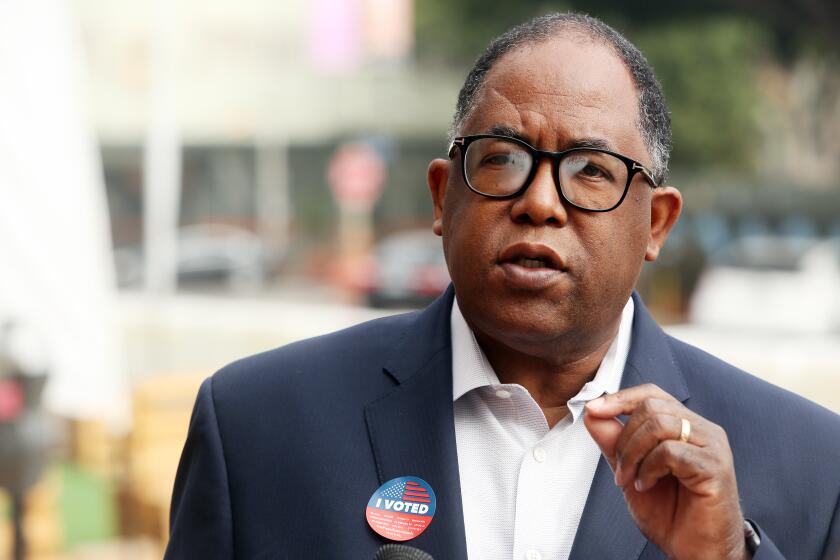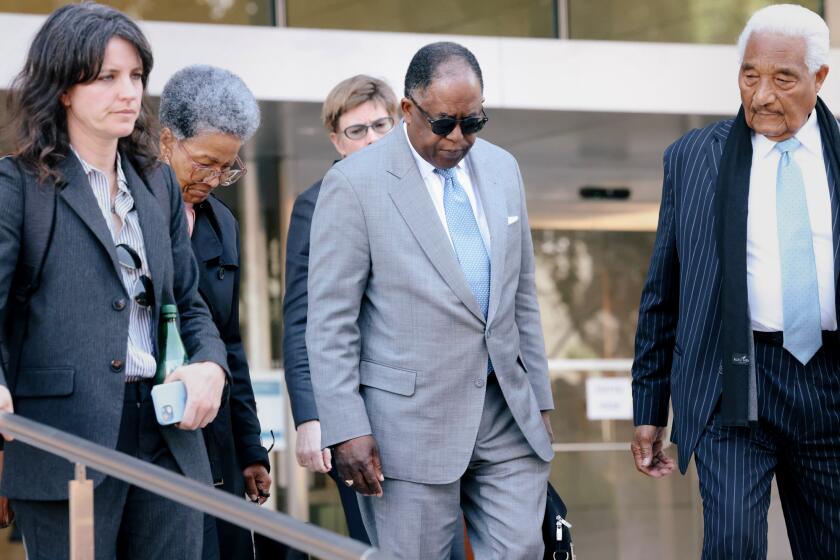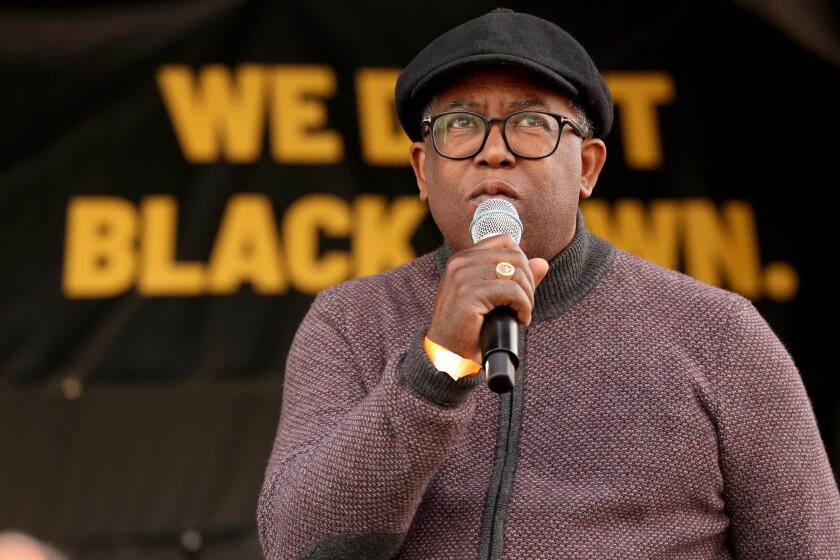Ridley-Thomas rests defense, calling two former L.A. County supervisor colleagues
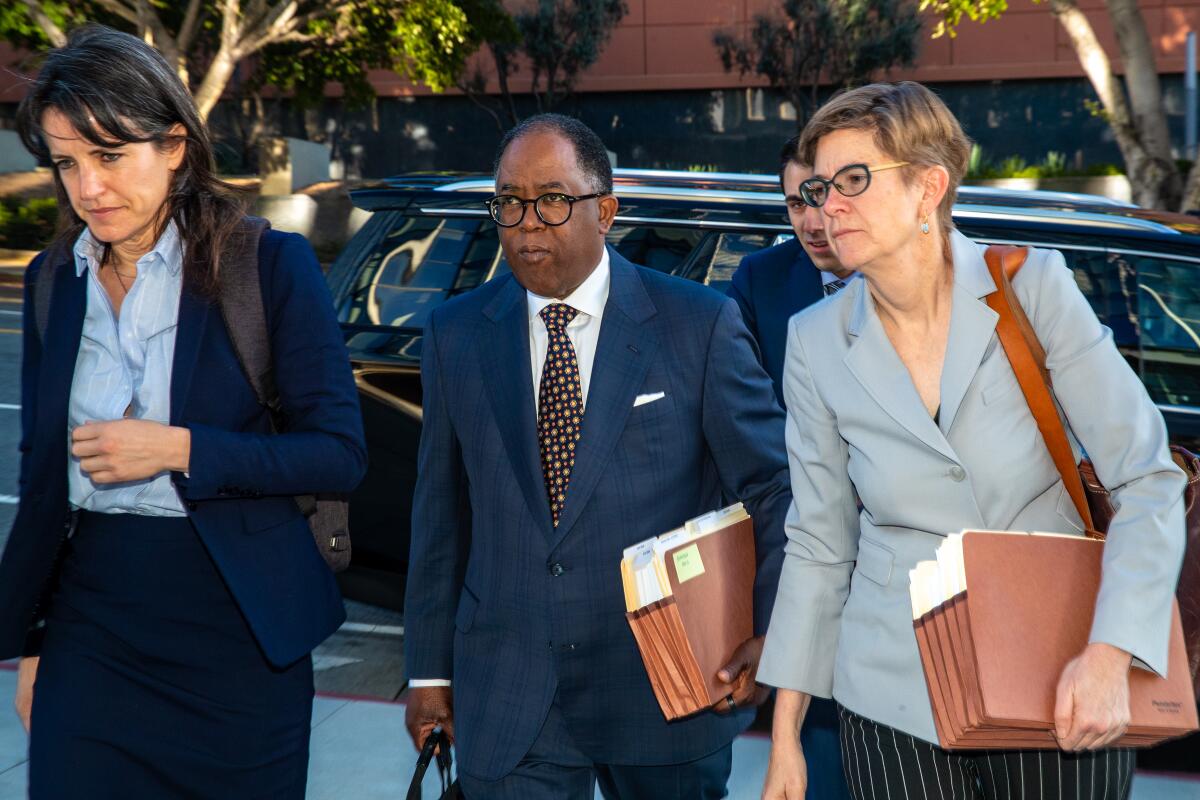
Lawyers for suspended City Councilmember Mark Ridley-Thomas concluded their defense on Wednesday, and although the veteran politician did not take the witness stand, two former colleagues on the Los Angeles County Board of Supervisors did.
Both Janice Hahn, the current chair of the Board of Supervisors, followed shortly after by retired Supervisor Sheila Kuehl, asserted under oath that Ridley-Thomas did not goad them into supporting three motions that prosecutors allege were tainted by a corrupt conspiracy with a USC dean.
“Did our client, Dr. Mark Ridley-Thomas, pressure you in any way to vote for this proposal?” asked defense attorney Arturo Gonzalez about a plan to extend a USC contract for a remote mental health clinic.
“No,” said Hahn, who wore a royal blue blazer and a cross around her neck. “I don’t specifically recall this motion,” Hahn said of USC’s Telehealth program, but explained, “It was something we believed in.”
There’s no allegation in the case that Ridley-Thomas pressured his colleagues on the board to vote a certain way. But the testimony of Hahn and Kuehl — no more than 15 minutes in length — was among a parade of mostly current or former L.A. County staff and officials summoned to tell jurors about local government.
The goal of the defense appeared to show that the three board actions — for the Telehealth clinic, for a probation reentry center near USC and a probation employee training program — were not part of a corrupt quid pro quo with a USC dean as alleged by prosecutors, but instead the result of a well-intentioned and mundane bureaucracy.
The inside account of the county was paired with the testimony of Ann Ravel, former commissioner of the Federal Election Commission, who said that Ridley-Thomas’ $100,000 donation from a campaign account through USC to his son’s nonprofit was legal under California law, despite the lack of transparency over the ultimate recipient.
“It absolutely did comply with the law,” said Ravel.
The testimony — in a courtroom packed with Ridley-Thomas’ supporters — sets the stage for closing arguments on Thursday.
Karly Katona, a longtime aide who rose to chief of staff in Ridley-Thomas’ City Council office, testified to an “extensive internal vetting process” for motions that her boss put forth.
“He would get his red pen out,” Katona said of Ridley-Thomas reading draft motions.
The witnesses also vouched for Ridley-Thomas’ long-standing ties to USC and the depth of his policy goals, especially for issues that are part of the case: mental health, probation and reentry from incarceration.
“He really felt that people deserve second chances,” said Katona, who summarized his philosophy as, “People don’t get well in a cell.”
Emily Williams, a former staffer for Ridley-Thomas, testified to the handling of a confidential letter from a USC dean that was hand-delivered to the supervisors office. The letter has been a central part of the prosecutors’ case, laying out Marilyn Flynn’s requests in the alleged quid pro quo.
Williams said she recognized the letter from a 2017 meeting when Ridley-Thomas called her to his office.
“Had he called you in his office to look at letters before?” defense lawyer Ramsey Fisher asked. Yes, she replied — a weekly occurrence.
Other testimony appeared to inoculate Ridley-Thomas from the emails that form the bulk of prosecutors’ evidence. Williams was asked about an email in which Ridley-Thomas told the USC dean, “Your wish is my command” with a wink emoji.
“He used emojis with her because he used emojis with us,” Williams said, eliciting chuckles in the courtroom. “He’d sometimes say these pithy, succinct things.”
On cross-examination, prosecutors sought to highlight the former staffers’ loyalty to Ridley-Thomas, along with the limits of their knowledge.
Asked if she knew in May 2017 whether Ridley-Thomas was discussing with Flynn his son’s attendance at USC’s social work program, Williams said no.
“That’s because you wouldn’t be privy to conversations the defendant had with Marilyn Flynn?” Assistant U.S. Atty. Michael Morse asked.
After the jury left Wednesday afternoon, Assistant U.S. Atty. Lindsey Dotson summarized in court the arc of the defense: “The suggestion is: ‘Nothing to see here folks,’” Dotson told U.S. District Judge Dale Fischer.
The bookend of the defense case was not Ridley-Thomas but his wife.
Avis Ridley-Thomas narrated how the couple were high school sweethearts now married for 44 years. They have twin sons, Sebastian and Sinclair.
Sebastian’s resignation from the state Assembly and the benefits he received from USC are the crux of the allegations against her husband. Avis offered insights of this period, particularly her son’s poor health, in a calm cadence.
“He was just not well,” she said. “It was clear he needed to do something else with his life.”
There were no questions about the full scholarship and job he received from USC or the ongoing sexual harassment inquiry when he stepped down.
Instead, jurors heard, Sebastian moved in with his parents, began his courses for USC’s master’s degree and “seemed relaxed.”
“He was taking it very easy,” Avis said.
More to Read
Start your day right
Sign up for Essential California for news, features and recommendations from the L.A. Times and beyond in your inbox six days a week.
You may occasionally receive promotional content from the Los Angeles Times.
